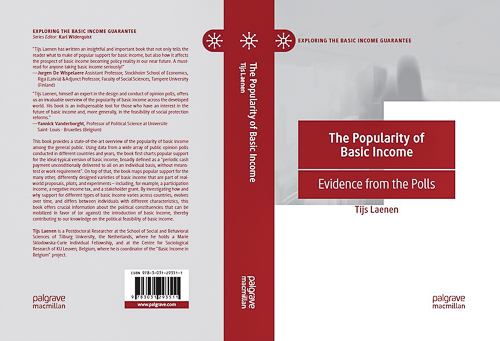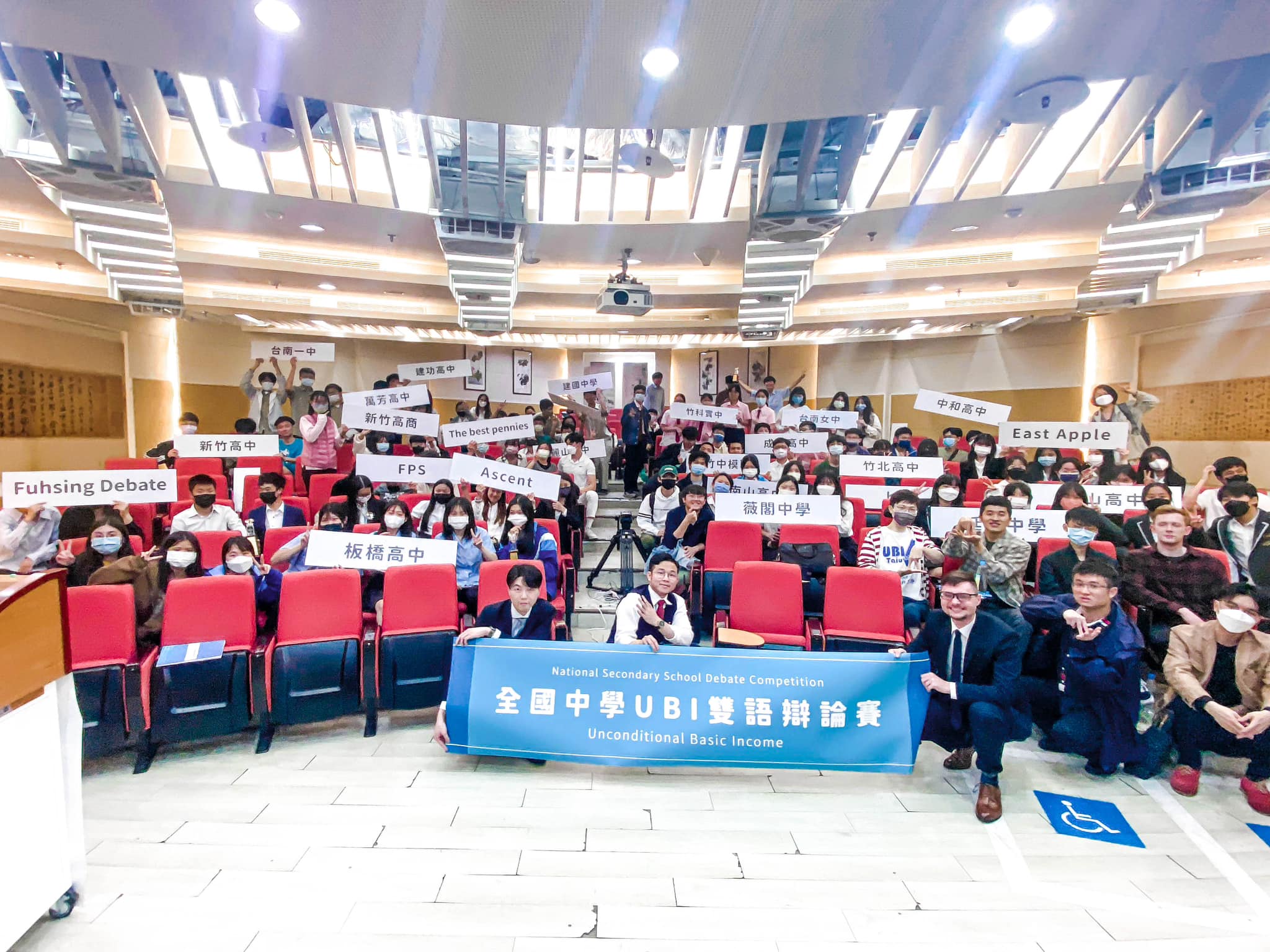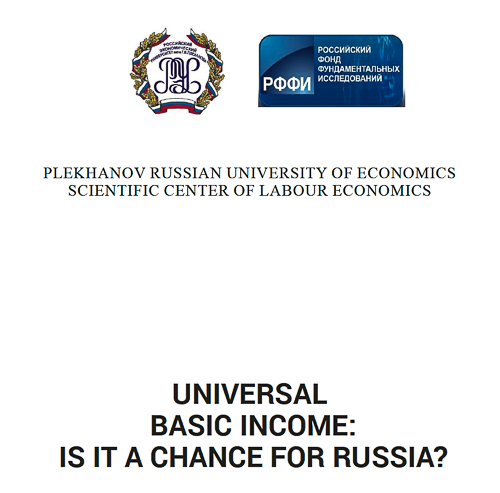
by Peter Knight | May 11, 2023 | News
How popular is basic income among the general public and different groups within it? Although many argue that this question is hugely important for the political feasibility of public opinion, the current scientific evidence is very much scattered. This book provides the most-up-to date and fine-grained overview of the popularity of basic income that is currently available.
Using data from a wide array of public opinion polls conducted in different countries and years, the book first charts popular support for the ideal-typical version of basic income, broadly defined as a “periodic cash payment unconditionally delivered to all on an individual basis, without means-test or work requirement”. On top of that, the book maps popular support for the many other, differently designed varieties of basic income that are part of real-world proposals, pilots, and experiments – including, for example, a participation income, a negative income tax, and a stakeholder grant.
By investigating how and why support for different types of basic income varies across countries, evolves over time, and differs between individuals with different characteristics, this book offers crucial information about the political constituencies that can be mobilized in favor of (or against) the introduction of basic income, thereby contributing to our knowledge on the political feasibility of basic income.
The book can be accessed here. In case of questions, please contact the author at tijs.laenen@kuleuven.be.
by Mike Valentine | May 3, 2023 | Arabic
الأصل: الفكرة, التجمع, الجائزة.
في خريف 1983, قرر كل من بول ماري بولانجر وفيليب ديفيت وفيليب فان باريج, ثلاثة باحثين شباب تابعين لأقسام الديموغرافيا والإقتصاد والفلسفة بجامعة لوفان (بلجيكا) تشكيل مجموعة عمل من أجل استكشاف الآثار المترتبة على تطبيق فكرة بسيطة للغاية وغير تقليدية, لكنها جذابة والتي اقترح فان باريج تسميتها في ورقة تم تداولها في كانون الأول من عام 1982 “عالمية التخصيص”.
أختارت المجموعة بالإجماع اسما مستعارا: ‘مجموعة شارلز فورييه’ . كان باكورة إنتاجها إصدار عدد خاص من المجلة الشهرية الصادرة في بروكسل La Revue nouvelleفي نيسان (ابريل) 1985
تابعت المجموعة مسيرتها, فأحرزت جائزة نتيجة عرضها لفكرتها وتداعياتها المحتملة وقد تم ذلك بشكل استفزازي في مسابقة حول مستقبل العمل نظمتها مؤسسة King Baudoun ومقرها بروكسل.
اللقاء الأول.بنتيجة الدخل غير المتوقع, قررت مجموعة تشارلز فورييه أن تنظم مؤتمرا تدعوا اليه بعض من تناولوا منفردين فكرة الدخل الأساسي غير المشروط. كان هذا المؤتمر أول مؤتمر دولي حول الدخل الأساسي, دعا اليه فيليب فان باريج في مدينة لوفين لانيف الجامعية بتاريخ 4-6 أيلول (سبتمبر) من عام 1986 بحضور ستون مشاركا تمت دعوتهم بصورة منفردة. إتضح فيما بعد أنه كان حدث غير عادي حقا, حيت تم التعارف فيما بين العديد من الباحثين المنفردين في هذا المضمار. ومن ضمن هؤلاء: جونار أدلر كارلسون, جان أوتو أندرسون, يولاند بريسون, بول دي بير, الكسندر دي رو, روشين كاليندر, نك دوبين, ماري لويز دوبوين, جيرارد رولاند, إيان غوف, بيير جون كييري, بيل جوردان, غريتيجي لوبي, آني ميلر, إدوين مورلي فليتشر, كلاوس أوفي, هيرميون باركير, ريكاردو بيتريللا, يافيد بيردي, غي ستاندينج, روبرت فان دير فين, جورج فوبروبا و توني والتر.
نشوء الشبكة. مع وصول المؤتمر إلى جلسته الختامية, أعرب العديد من المشاركين عن رغبتهم في تأسيس منظمة دائمة تعني بإصدار نشرة دورية وعقد مؤتمرات منتظمة. أقترح جاي ستانديج تسمية هذه المنظمة بالشبكة الأوروبية للدخل الأساسي, ونال الأسم إجماعا مقبولا, حيث لم يكن بالإمكان منافسة جمال الإختصار BIEN , والذي يعني ” جيد ” باللغتين الفرنسية والإسبانية. تم تحديد الهدف من المنظمة وتضمن ذلك في النظام الأساسي لها والمعتمد في العام 1988 على الشكل التالي:
“تهدف BIEN إلى العمل كحلقة إتصال بين الأفراد والجماعات المهتمة بالدخل الأساسي, أي الدخل الممنوح على أساس فردي للجميع بلا شروط وبدون إختبار للإمكانات وبدون أن يتطلب ذلك أي عمل. وتعمل على تعزيز النقاش المتعمق حول هذا الموضوع في كل أنحاء أوروبا “.
وشغر كل من بيتر أشبي (المجلس الوطني للمنظمات التطوعية), كلاوس أوفي (وبعدها في جامعة بريمن) وجاي ستاندينج (وبعدها في منظمة العمل الدولية) أول امناء لمنظمة BIEN . وشغر والتر فان ترير (بعدها في جامعة أنتويرب) سكرتيرا, كما شغر ألكسندر دي رو (بعدها مساعدا برلمانيا في البرلمان الأوروبي) أمين صندوق, وشغر فيليب فان باريج (جامعة لوفان) محرر النشرة الإخبارية إضافة إلى سكرتيرا, وبقي كل من اشبي وأوف كمشاركين, وقد خلفهما في عام 1988 إدوين مورلي فليتشر (1988-1998 ) وجاي ستاندينج (1986-2008) .
شريان حياة الشبكة: النشرة الإخبارية:
في حقبة ماقبل الأنترنت, شكل توريع النشرة الإخبارية المطبوعة بصورة منتظمة جوهر وجود الشبكة. ف نشرت BEIN خلال الفترة الممتدة بين عام 1988 الى تموز عام 2001 , 36 عددا من نشرتها الإخبارية المطبوعة والتي كانت تصدر ثلاث مرات في العام ويتم توزيعها على الأعضاء المشتركين والمسددين للرسوم. في خريف 1998 تم استبدال العضوية السنوية بالعضوية مدى الحياة وذلك لتسهيل إدارة الإشتراكات.
أتاح ظهور الاتصالات الألكترونية إلى تكثيف وتوسيع انتشار المعلومات, وصار إبتداء من كانون الثاني عام 2000 يتم ارسال مقتطفات من أخبار BEIN عدة مرات في العام إلى عدد كبير من المشتركين ( 138 عددا مابين كانون الثاني من عام 2000 وكانون الثاني من عام 2020, حيث اعتمدت فيها BEIN نمطا جديدا من النشرة). في عام 1996 أنشأت BEIN موقعا على شبكة الإنترنت فأضاف قليلا على النشرات الإخبارية ومقاطع إخبارية سريعة يمكن تنزيلها. وتطور الموقع لاحقا بسرعة ليقدم ثروة من المعلومات والمراجع حول الدخل الأساسي وحركة الدخل الأساسي.
مؤتمرات بآفاق متنامية. مع بداية المؤتمر التأسيسي, صارت BIEN تنظم مؤتمرا كل عامين بمشاركة مجموعة متزايدة ومتنوعة من الأفراد:
- Louvain-la-Neuve, BE (UCLouvain, 4-6 September 1986, convenor: Philippe Van Parijs)
- Antwerp, BE (Universitaire Faculteiten St Ignatius, 22-24 September 1988, convenor: Walter Van Trier)
- Florence, IT (European University Institute, 19-20 September 1990, convenor: Edwin Morley-Fletcher)
- Paris, FR (Université de Paris-Val de Marne, 18-19 September 1992, convenors: Yoland Bresson & & Pierre Lavagne)
- London, UK (Goldsmith College, 8-10 September 1994, convenor: Richard Clements)
- Vienna, AT (United Nations Centre, 12-14 September 1996, convenors: Lieselotte Wohlgenannt, Michael Tepser & Bernd Marin)
- Amsterdam, NL (Universiteit van Amsterdam, 10-12 September 1998, convenors: Robert J. van der Veen, Loek Groot & Paul de Beer)
- Berlin, DE (Wissenschaftszentrum Berlin), 6-7 October 2000, convenor: Claus Offe)
- Geneva, CH (International Labour Office, 13-14 September 2002, convenor: Guy Standing)
- Barcelona, ES (Forum Universal de las Culturas, 19-20 September 2004, convenors: David Casassas & Jose Noguera)
أرشيف من الأيام الأولى. تم نشر المساهمات التي قدمت في بعض المؤتمرات في عدد من المجلدات:
- Anne G. Miller ed. Proceedings of the First International Conference on Basic Income (Louvain-la-Neuve, September 1986). Antwerp: BIEN & London: BIRG, 1988.
- Walter Van Trier ed. Proceedings of the Second International Conference on Basic Income. (Antwerp, September 1988). Antwerp: BIEN & London: BIRG, 1990
- Philippe Van Parijs ed., Arguing For Basic Income. Ethical Foundations for a Radical Reform. London & New York: Verso, 1992.
- Robert J. van der Veen & Loek Groot eds., Basic Income on the Agenda. Policy Options and Political Feasibility, Amsterdam: Amsterdam University Press, 2000.
- Guy Standing, ed., Promoting Income Security as a Right. Europe and North America, London: Anthem Press, 2004.
إلى جانب العديد من الكتب والأوراق والتقارير الأخرى حول الدخل الأساسي لحقبة ماقبل الأنترنت, يتم الإحتفاظ بالأوراق المقدمة في مؤتمرات BIEN الأوائل في أرشيف BJEN في:
UCLouvain’s Hoover Chair of Economic and Social Ethics, 3 Place Montesquieu, 1348 Louvain-la-Neuve, Belgium
من شبكة أوروبية إلى شبكة عالمية.
بحلول عام 2004, صار %20 من عدد المشتركين عبر الأنترنت و %25 من أعضاء BIEN الدائمين من خارج أوروبا, فازدادت بذلك الضغوط لتحويل شبكة BIEN من شبكة أوروبية إلى شبكة عالمية, وساعدت تطور الاتصالات عبر الأنترنت وأنخفاض أكلاف السفر الجوي إلى اعتبار هذا الخيار أكثر واقعية.
في كانون الثاني (يناير) 2004, وقع الرئيس البرازيلي لولا على إقتراح السناتور إدواردو سوبليسي بشأن ” دخل المواطنة الأساسي” لجميع البرازيليين. وضع هذا الإقتراح حدا للمشككين الذين كانوا على قناعة بأن الدخل الأساسي غير المشروط لايمكن أن يعني شيئا إلا في الدول الأوروبية حيث الرفاهية والتقدم. أقترحت اللجنة التنفيذية ل BIEN تغيير اسم الشبكة من “الشبكة الأوروبية للدخل الأساسي” إلى “شبكة الدخل الأساسي”, وتم أعتماد هذا الإقتراح من قبل الجمعية العامة ل BIEN في 20 أيلول (سبتمبر) 2004.
هيكلة الحركة.
تعهدت اللجنة المنتخبة الجديدة بتعديل النظام الأساسي وتوسيعه (لم يتجاوز الصفحة الواحدة في حينها) ووافقت الجمعية العامة على نسخة جديدة في عام 2008. نظرا لنمو الشبكة, كان لابد من زيادة حجم اللجنة التنفيذية وترافق هذا مع ازدياد أهمية الموقع الألكتروني. تعاقب على ترأس لجنة الشبكة الموسعة أو شارك بالرئاسة كل من جاي ستاندينج وإدواردو سوبليسي (2008-2004) وإنغريد فان نينيرك (2014-2008) وكارل ويدركويست (2008-2017) ولويز هاغ (2014-2020) وساراث دافالا (2020-) ورأس فيليب فان باريج (2004-) مجلسا استشاريا يضم جميع الأعضاء السابقين للجنة.
تم في أيار (مايو) 2016 إنشاء منصب المدير العام, ولم يتم إنتخاب شاغل هذه الوظيفة من قبل الجمعية العامة بل تم تعيينه من قبل اللجنة التنفيذية, وقد تولى مالكولم توري هذا المنصب منذ تأسيسه في عام 2016, وتم إضفاء الطابع الرسمي على الشبكة كمنظمة دولية غير ربحية (AISBL) بموجب القانون البلجيكي, وبعد ذلك بعامين, تحولت إلى منظمة خيرية مدمجة (CIO) بموجب القانون البريطاني, وانتقل مقرها الرسمي من بروكسل إلى لندن وتم تعديل النظام الأساسي وفقا لذلك.
من المؤتمرات التي تعقد كل سنتين إلى المؤتمرات السنوية.
مع اتجاه الشبكة إلى العالمية, بدأت BIEN في الإعتراف بالشبكات الوطنية خارج أوروبا كشركات تابعة لها وقررت في عام 2004 البدء في التناوب في أماكن عقد المؤتمرات بين أوروبا وخارج أوروبا. ومع تزايد شعبية فكرة الدخل الأساسي في جميع أنحاء العالم, قررت البدء في تنظيم مؤتمرها سنويا بدلا من كل عامين, فاجتمعت شبكة الدخل الأساسي للأرض في الأماكن التالية:
- Capetown, ZA (University of Capetown, 3-4 November 2006, convenor: Ingrid van Niekerk)
- Dublin, IE (University College, Dublin, 21-22 June 2008, convenors: Sean Healy & Brigid Reynold)
- Sao Paulo, BR (Universidade de São Paulo, 30 June-2 July 2010, convenors: Eduardo Suplicy & Fabio Waltenberg)
- Ottobrunn, DE (Wolf-Ferrari Haus, 14-16 September 2012, convenor: Dorothee Schulte-Basta)
- Montreal, CA (MacGill University, 27-29 June 2014, convenors: Jurgen De Wispelaere & Daniel Weinstock)
- Seoul, KR (Sogang University, 7-9 July 2016, convenor: Hyosang Ahn)
- Lisbon, PT (Lisbon School of Economics, 26-27 September 2017, convenor: Roberto Merrill)
- Tampere, FI (University of Tampere, 24-26 July 2018, convenor: Jurgen De Wispelaere)
- Hyderabad, IN (NALSAR University, 23-26 August 2019, convenor: Sarath Davala)
[20. Brisbane, AU (University of Queensland, 28-30 September 2020, convenors: Troy Henderson & Greg Marston): postponed to 2022 because of the covid19 pandemic]
21. Glasgow, UK (Online, 18-21 August 2021, convenor: Mike Danson)
Providing enthusiasm, imagination, mutual understanding and tenacity keep feeding the worldwide basic income movement, this is only the beginning of BIEN’s history.
فيليب فان باريج
ترجمة جورج خوام

by Tyler Prochazka | Apr 17, 2023 | News
TAIPEI, Taiwan – On March 11 and 12, UBI Taiwan hosted a national bilingual high school debate tournament at National Chengchi University (NCCU). Over 100 students from local and international schools across Taiwan participated in the event, which featured both English and Chinese debate sections.
The debate focused on whether Taiwan should enact an Unconditional Basic Income (UBI) system. Students presented cases discussing the feasibility, necessity, and efficiency of UBI. Inflation was a common concern on the con side, while expanding opportunities for Taiwanese citizens, such as starting businesses, was a popular argument on the pro side.
The Chinese final round saw the pro side win, arguing that the con side could not specifically identify why Taiwan did not have enough money to support both UBI and other essential programs. In the English final round, the con side emerged victorious, based on the idea that inflation and feasibility could present problems for implementing UBI in Taiwan.
Many students expressed their gratitude for the platform to speak on issues that mattered to them. For some, it was their first time studying UBI, and they found the experience to be a valuable learning opportunity to explore the future of Taiwan’s social services.
UBI Taiwan founder Tyler Prochazka addressed the audience at the end of the event, discussing the fear of automation with the rise of ChatGPT. He also highlighted the pressing issues in Taiwan that merit discussing UBI, such as helping parents raise their children, especially single parents. Prochazka argued that a program providing an unconditional basic income to parents with children could feasibly be implemented now, citing numerous studies showing the benefits outweigh the costs.
“I believe that by coming together to have these discussions, we can better understand the potential of a UBI and how it can benefit Taiwan’s society and our economy,” Prochazka said.
Allen Chen, co-founder of Lead for Taiwan, emphasized the importance of debate in addressing issues affecting Taiwan’s future. He encouraged students to take their academic experience and make a change in the real world.
The event was a milestone in promoting bilingual debate competitions in Taiwan, with participants from schools such as Kaohsiung and Taipei American School, Hsin Chuang High School, Wego High School, and Chien Kuo High School. This was the first competition of its kind in Taiwan, bringing English and Chinese divisions together in a tournament that was free for students to participate in.
The judges of the competition had diverse international backgrounds, including renowned lawyers, United Nations consultants, and top global business consultants, providing valuable real-world feedback to the participants.
NCCU’s International College of Innovation provided support and the venue, while Ascent Academy sponsored the event financially to expand debate opportunities across Taiwan. Taiwan’s Chinese Debate Promotion Association (CDPA), which is well-known in Taiwan for its national debate tournaments, administered the competition.
UBI Taiwan’s chairman Jiakuan Su said he hopes to continue hosting national bilingual debate competitions in the future, providing students throughout Taiwan with the opportunity to engage in debate activities and gain a deeper understanding of social issues.
“What I saw in this competition was not just about discussing common issues of basic income, but more about the students’ imagination of the future of our social welfare system,” Su said. “As an audience member, I was deeply moved by their speeches and I hope this experience can be an important component of their development into engaged citizens.”

by Peter Knight | Jan 29, 2023 | News
A group of Russian professors led by Vyacheslav Bobkov of the Plekhanov Russian University of Economics, Scientific Centre of Labour Economics, Moscow, has published a 371 page monograph in Russian with an English language summary.
“Goals of the study presented in the monograph are to develop theoretical provisions of the concept of an universal basic income (UBI); to summarize and systematize the results of the survey of the Russian experts and citizens about the potential UBI key principles and possibilities of its implementation in Russia; to identify primary foreground categories of the population for its testing; to assess the feasibility of expanding UBI tools, taking into account the development of it’s transitional forms (the definition of “basic income (BI)” is used below for them), especially during the COVID–19 pandemic; to model the pilot projects (experiments) on the UBI implementation for the most vulnerable groups of the population.”
You can read the English summary here and the full Russian text here.

by Peter Knight | Aug 29, 2022 | News, Research
In August, 2022, a new book and a new report on UBI research in the UK were published.
The book is The macroeconomics of basic income by Zsófi Kőműves, Chris Thoung, and Jakub Zagdanski. It was published by Cambridge Trust for New Thinking in Economics and can be downloaded free here.
While there is growing work on the small-scale (micro) impacts of basic income on people and households, there is much less that considers how such policies might affect an entire economy. This new research by Cambridge Econometrics looks more closely at the economy-wide (macroeconomic) effects of basic income as it might operate in the UK.
A new report, ‘Technological change and growth regimes: Assessing the case for universal basic income (UBI) in an era of declining labour shares’, has been published by the University of Bath Institute for Policy Research (IPR).
The report, co-authored by Joe Chrisp, Aida Garcia-Lazaro and Nick Pearce, supported by funding from Geoff Crocker, examines to what extent the role of technological change is responsible for a decline in the labour share, and discusses the likely effects, and political feasibility, of policy solutions such as universal basic income (UBI).
Cambridge Econometrics’ mission is to provide clear and useful insights, based on rigorous and
independent economic analysis, to address the complex challenges facing society.
www.camecon.com
Cambridge Econometrics Limited is owned by a charitable body,
the Cambridge Trust for New Thinking in Economics.
www.neweconomicthinking.org
Contact person: Chris Thoung (ct@camecon.com)
Authors: Zsófi Kőműves (zsk@camecon.com)
Chris Thoung
Jakub Zagdanski





